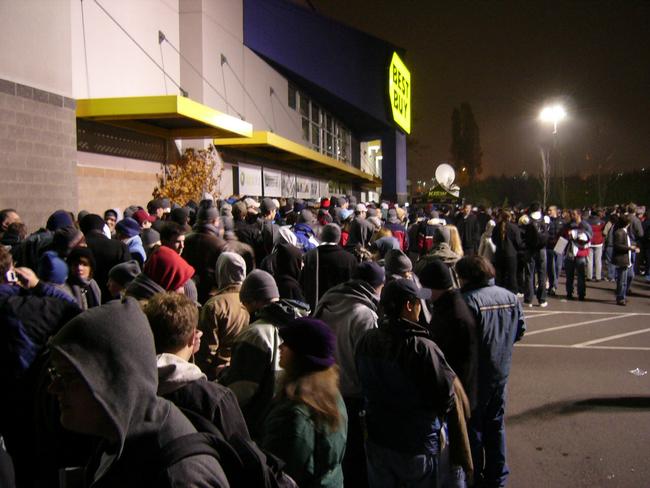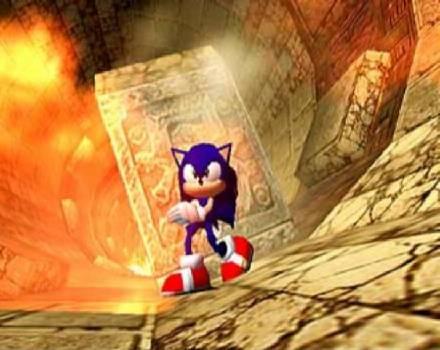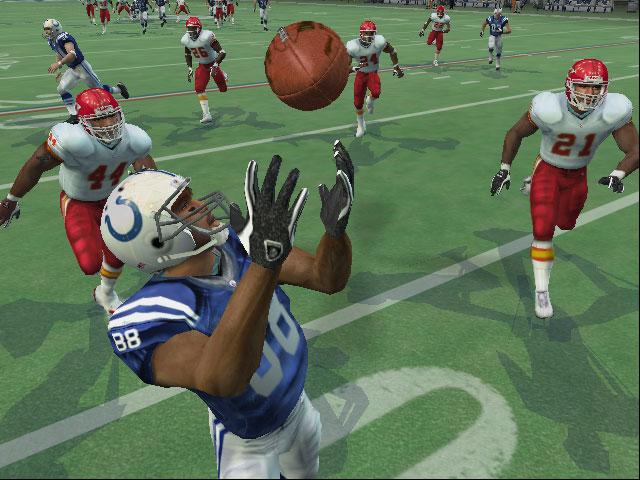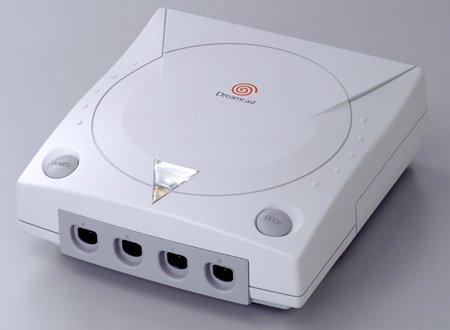
Now and Then... The Dreamcast
With the Xbox 360 almost a year old, the Wii ready to wow us all and the PS3 gearing up for a stunted release across the globe between now and March, I figure it's time for some nostalgia. My favourite console launch of all time is also the very first console I picked up on launch day. Maybe that has something to do with my nostalgia -- your first midnight launch is, I would imagine always a fantastic, one-off experience.

First up, history lesson! With their expensive next-gen powerhouse, the Saturn, faltering, they were in big trouble. Sonic the Hedgehog games for the Saturn were cancelled, meaning Sega's big-hitting mascot never had a proper game on the console, and very few titles were "must own", and even fewer are remembered today -- thank god for NiGHTs. Sega looked to the future. They knew they needed an impressive new console, and they knew it needed to launch with Sonic. They also came to the same conclusion Microsoft did this generation -- launching before their competitors would promise sales.
The Dreamcast emerged into the world in Japan on November 27th, 1998 -- a whopping two years before Sony's PS2 would arrived in the same region. The console had several revolutionary features -- a memory card with a screen, and analogue shoulder triggers -- both firsts on a console. It used it's on Media format on the CDs, called BD-ROMs, which could hold 1.2gb of data. Oft overlooked is the fact the Xbox was not the first console to have built-in online capabilities -- it was in fact the Dreamcast!
One year later, the Dreamcast launched in North America, on 9th September, 1999. The date 9/9/99 featured a lot in the US promotion of the console. The European launch, the one I looked to and enjoyed was on October 14th in the same year.

The Dreamcast launch was clearly incredibly important to Sega -- they supported the console launch with a huge (even by today's standards) $100 million dollars. Sega promised 30 Dreamcast titles released between the launch date and Christmas 1999, with a further 10 first party projects every single year from then on also promised.
The future looked bright -- Sega pointed to over 100 developers developing for the Dreamcast in Europe alone, with all the major Japanese and American developers on-board too.
The launch was led by Sonic, as originally planned, with Sonic Adventure, Sonic's first venture into the realm of 3D proper selling like hot cakes and receiving rave reviews. While it was critically accepted not to be as good as Super Mario 64, it was praised as a fantastic step forward for Sonic after the strange Sonic 3D. Sonic Adventure would go on to be the best selling Dreamcast game ever.
The launch also boasted other Sega hits such as Sega Rally, Virtua Fighter, and a new addition in Capcom's Resident Evil series. With 10 launch titles and another 20 before Christmas, all was looking rosy.
At launch, the Dreamcast flew off shelves. It broke records in pre-orders, with over 300,000 filed across the US and then went on to smash another record, selling 225,000 consoles in the first 24 hours -- a record that would later be broken by the PS2. Sega made $98.4 million on hardware and software at launch. Sega was pleased about this, even going on record comparing the huge launch to the opening day of Star Wars: Episode I. Meanwhile, in the UK the reception was warm but not as fantastic as the US -- poor promotion and advertising, despite the huge budget meant many didn't even know the console was on its way, and many who did didn't know of the revolutionary online features and VMU unit, and simply decided to wait for the PS2 instead.

However, there were stormy waters ahead for Sega. One particular name which wasn't too big then but is huge now would be the bane of Sega's existence... EA expressed a doubt for the Dreamcast thanks to underwhelming Saturn sales, and said they would only produce games for the console if it sold 1 million units. After the Dreamcast smashed records and sold 1 million in 90 days, EA made a public statement saying they would not be supporting the Dreamcast in favour of Sony's Playstation 2 console.
Sony, too, were poised to cause trouble -- as Dreamcast sales in certain months began to surpass those for the N64, Sony announced their Playstation 2 console to the world, also confirming it would be backwards compatible with the hundreds of PS1 titles. In Japan, this caused the Dreamcast to be shunned by gamers almost entirely, and in the US and Europe this severely damaged the Dreamcast's momentum, with huge sales drop-off occurring just days after the announcement.
The PS2 launched (March in Japan, October in America and November in Europe) and smashed both of the records Sega set with the Dreamcast. The console was rapidly dying. Sega couldn't afford to pay for further advertising and Sony's massive budget and particularly support from EA was killing them.
When the Xbox and Gamecube were announced and launched, it was all but over for Sega. The money was drying up and continuing with the Dreamcast and continuing to fund advertising for the console. Sega made the decision to become third party developers and publishers of games as opposed to continue making consoles.

Despite its misfortunes, the Dreamcast is still alive and well, even today. There's a slow trickle of budget release titles in Japan, and the back catalogue is still sold via Sega's online site.
But why is this console my favourite launch? It wasn't my favourite or my first, though it was the first console I bought on launch day. Perhaps it's nostalgia for that first Midnight launch, where I waited as the store for the hour to come, and didn't sleep much at all the following day as I pushed to finish Sonic Adventure. Perhaps it's the mere fact that the Dreamcast launch was the best part of the console's lifespan, with the exception of the release of Shenmue 1 and 2...
To be quite honest, I'm not quite sure.
Then why write this article? Simple; I think something interesting can be learned from the plight of Sega's last days as a console developer, as one of "the big three." What's that, you ask? Also Simple. Nothing is ever certain in this business. Sega's Dreamcast launch broke records -- they sold the million EA wanted before they would develop, yet later the console, despite its online capabilities and other revolutionary innovations faltered and failed to have any longevity whatsoever.

Many say the Dreamcast was too much, too soon. The word broadband was at that time a far off dream, making online gaming neigh on impossible, while the VMU was a fun idea but lacked the proper technology to make it truly memorable. Some of the ideas have been repeated on later consoles to great effect.
My point being this -- nobody can truly see how all this is going to turn out. Every day I see a new article or news story entitled "Wii could win" and "Sony will come last", while others boast "Sony set to lengthen lead on other brands". I went back through some old internet sites and magazines, talking of how the strong Dreamcast Launch would damage the PS2...
The truth is this, Sony fans, Microsoft fans, Nintendo fans -- nothing is a given. Anything could happen. It'll be interesting to see what does.